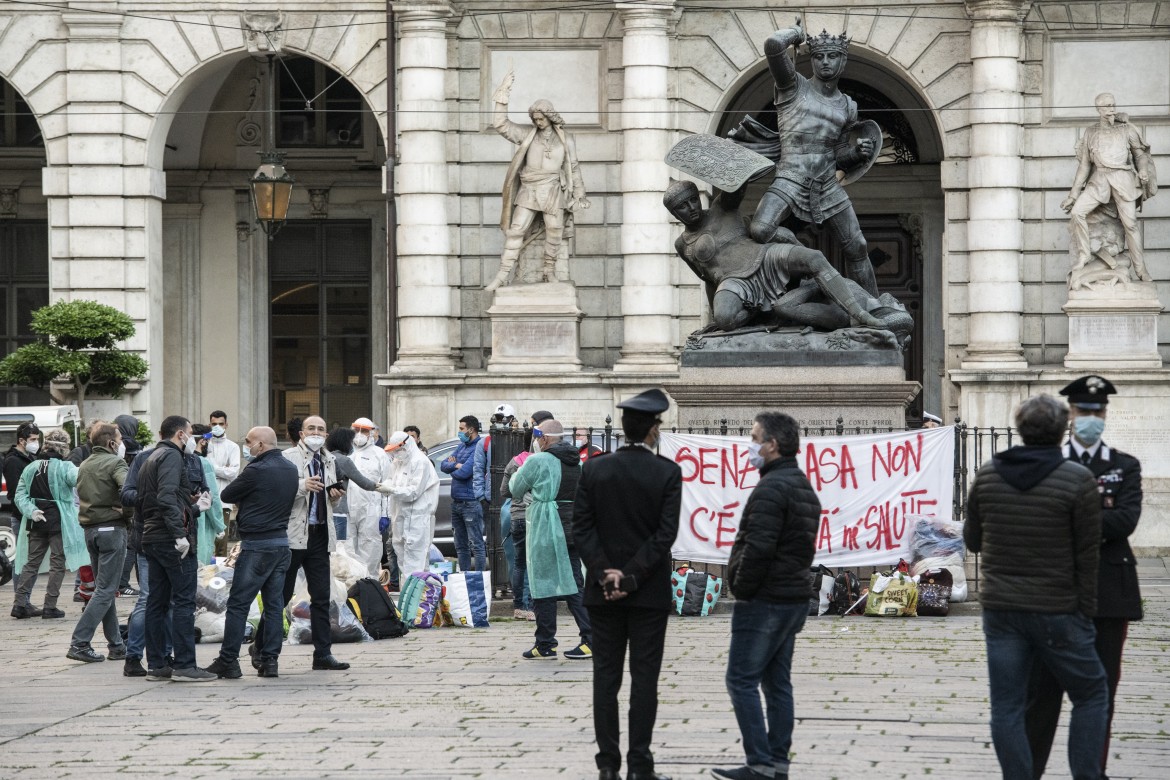Analysis
Renters in Italy are about to face a crisis within the crisis
The gap in wealth and standard of living between landlords and renters will widen even more, and migrants will once again bear the greatest burden.

The crisis situation arising from the pandemic has suddenly emphasized the importance of the topic of housing, and has highlighted the way in which the social stratification of the country is reverberating powerfully, not only as regards the physical characteristics of the home but also as regards the forms of its ownership.
In Italy, it is mostly the poorest or most precarious population that is living in rental properties, while home ownership has always represented the hallmark of stability, in national culture as well as practice. As a result of decades of public policies that have encouraged home ownership, this has meant that Italy is now a country where 80% of the population lives in a home their family owns. In this context, the rental sector has always been marginal. This is accompanied by the chronic weakness of public housing: marked by the scourges of disinvestment and privatization, public housing is now unable to respond (except partially) to the requirements of the most needy population (today, there are about 650,000 families waiting for public housing).
Against this background, the crisis triggered by COVID-19 will further widen the gap between landlords and tenants, exacerbating the crisis which was particularly affecting the populations living in rental housing even before the pandemic. In 2014, there were almost 1.3 million families in Italy who spent more than 40% of their income on rent. For many of them, a decrease in income linked to the pandemic could mean the impossibility of continuing to pay rent.
The government has done almost nothing in the face of this situation. The only intervention passed in recent months has been the €60 million increase to the National Fund to Support Access to Rented Housing—but this is a drop in the ocean compared to the real needs. Furthermore, in the “Restart Decree” there is not even a single line on the subject of rented housing, while the main measure planned in relation to housing (tax relief for energy performance improvement interventions) will essentially benefit the landlords.
As a result, there will be (and perhaps there already is) a crisis within the crisis, namely the crisis of those who are living in rental housing. In this context, migrants will be the main ones affected. Most of them live in rental properties, and they are among the most exposed to situations of housing distress.
There are several reasons for this. First of all, migrants cannot rely on family support in accessing housing—on the contrary, they often have to send financial support to their family members who remain in their country of origin. It is no coincidence that while 76.5% of Italians live in a home their family owns, this percentage drops to 27.9% when the family unit includes at least one foreigner. Secondly, in many cases migrants cannot rely on public support, for example because of various types of discrimination.
This is the case in Lombardy, which for a long time had a requirement for five years of residence in the region in order to have access to public housing, a constraint that has only recently been removed thanks to the intervention of the Constitutional Court. Moreover, it is also the case that migrants are charged higher rent (according to some research, higher by 10-20%) than an Italian would have to pay. All this is made even worse by the fact that migrants are in many cases in situations of poverty or receive very low wages.
Even more, this only applies to regular migrants. If we turn our attention to irregular migrants, the situation becomes even more dramatic, as they are forced to turn to the black market for rent. Not only does this mean that their housing conditions are often poor, but also that these migrants have none of the forms of protection that are available to regular renters.
While the pandemic has re-emphasized the centrality of the issue of housing (sometimes in a dramatic fashion) for millions of people in Italy, this centrality has not reverberated in the public debate, let alone in government action—which is, unfortunately, very much in line with the decades-long political marginalization of housing issues in Italy.
Originally published at https://ilmanifesto.it/vivere-in-affitto-ai-tempi-del-covid-19/ on 2020-05-15
